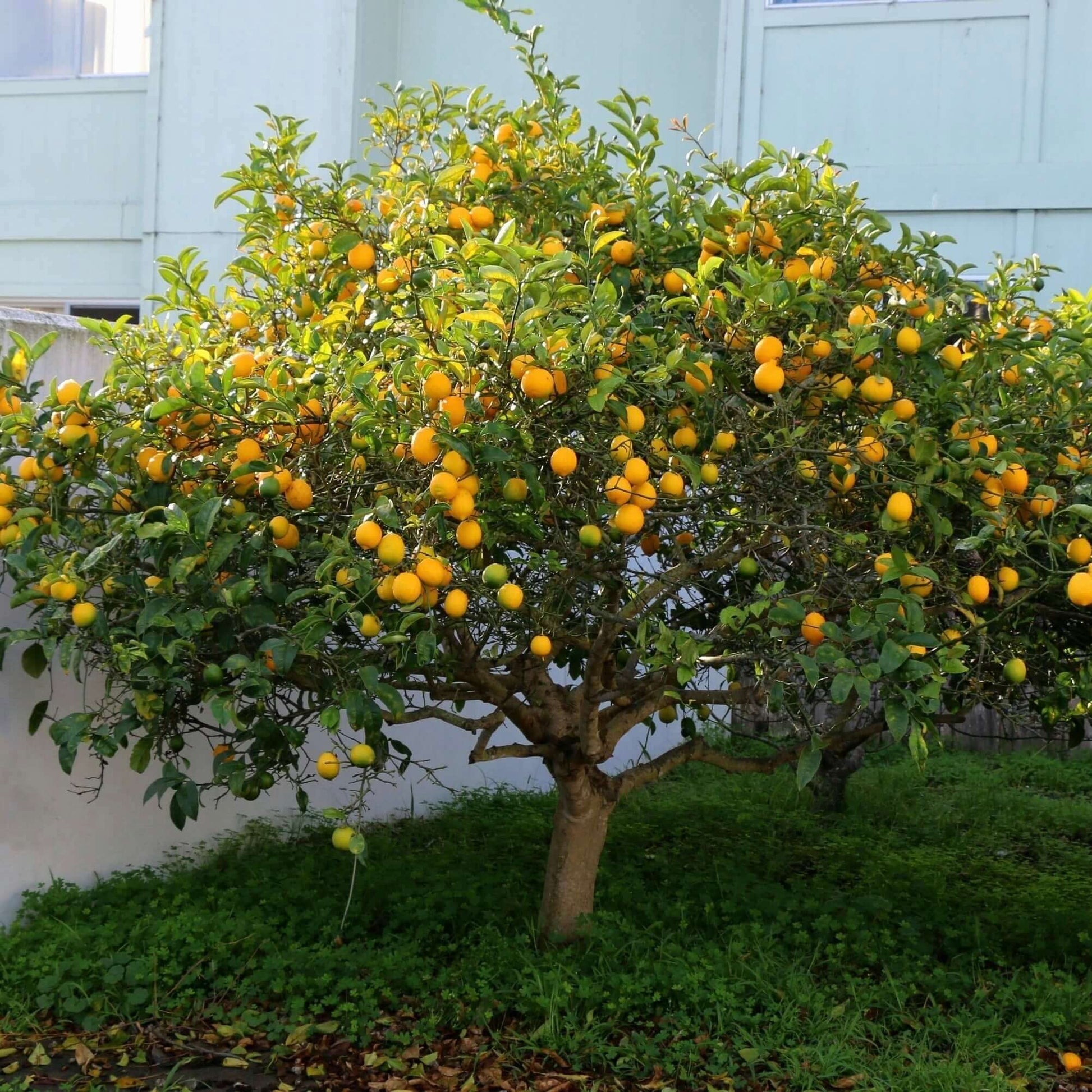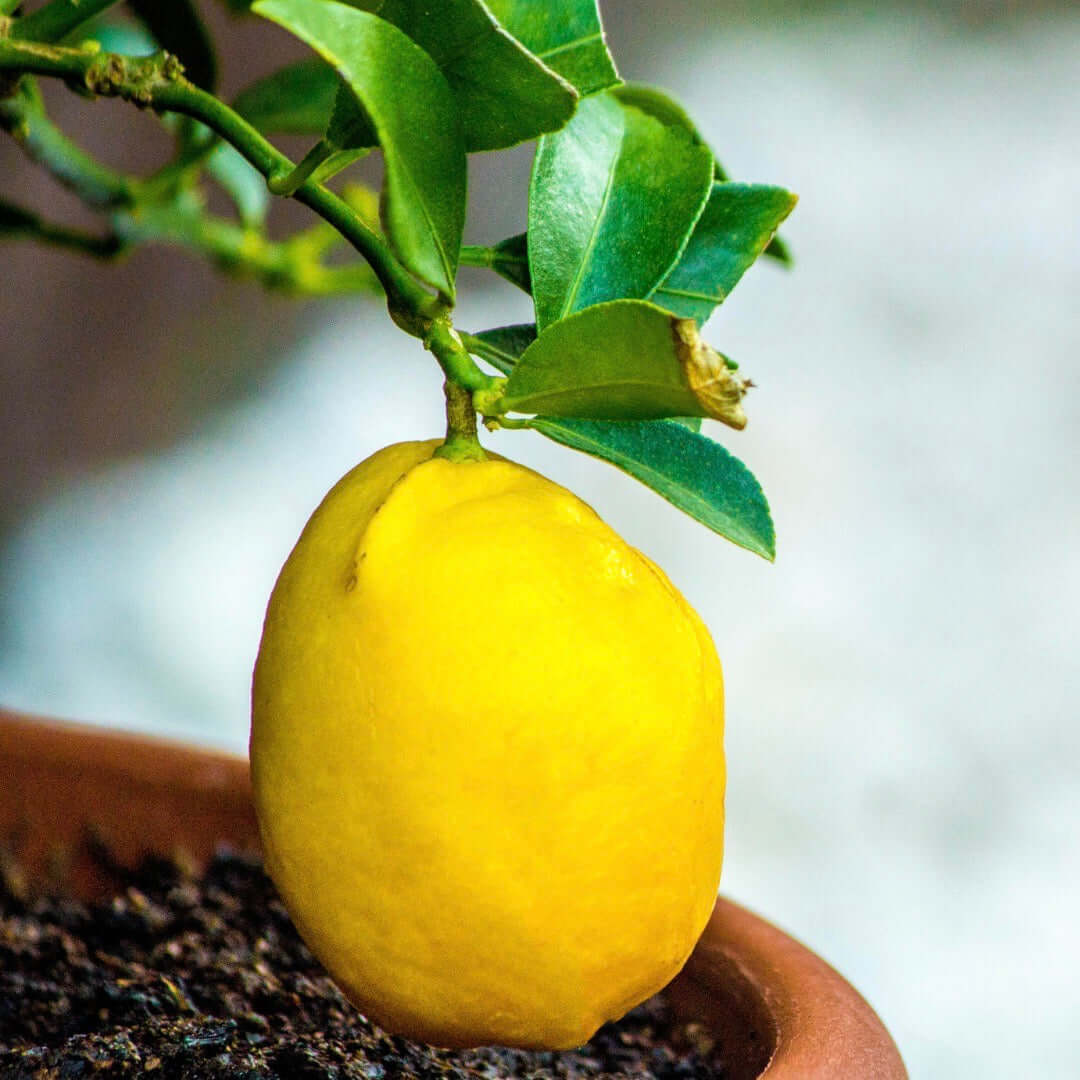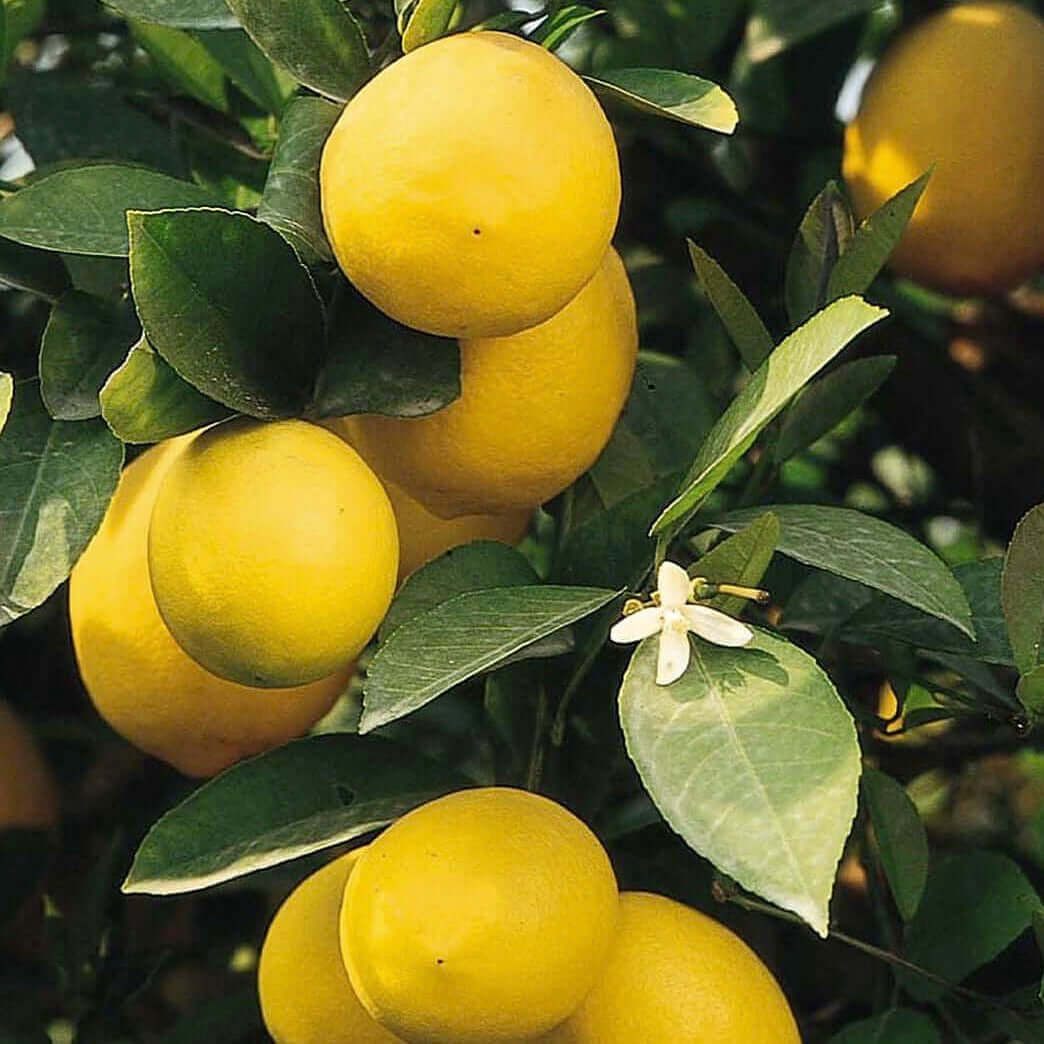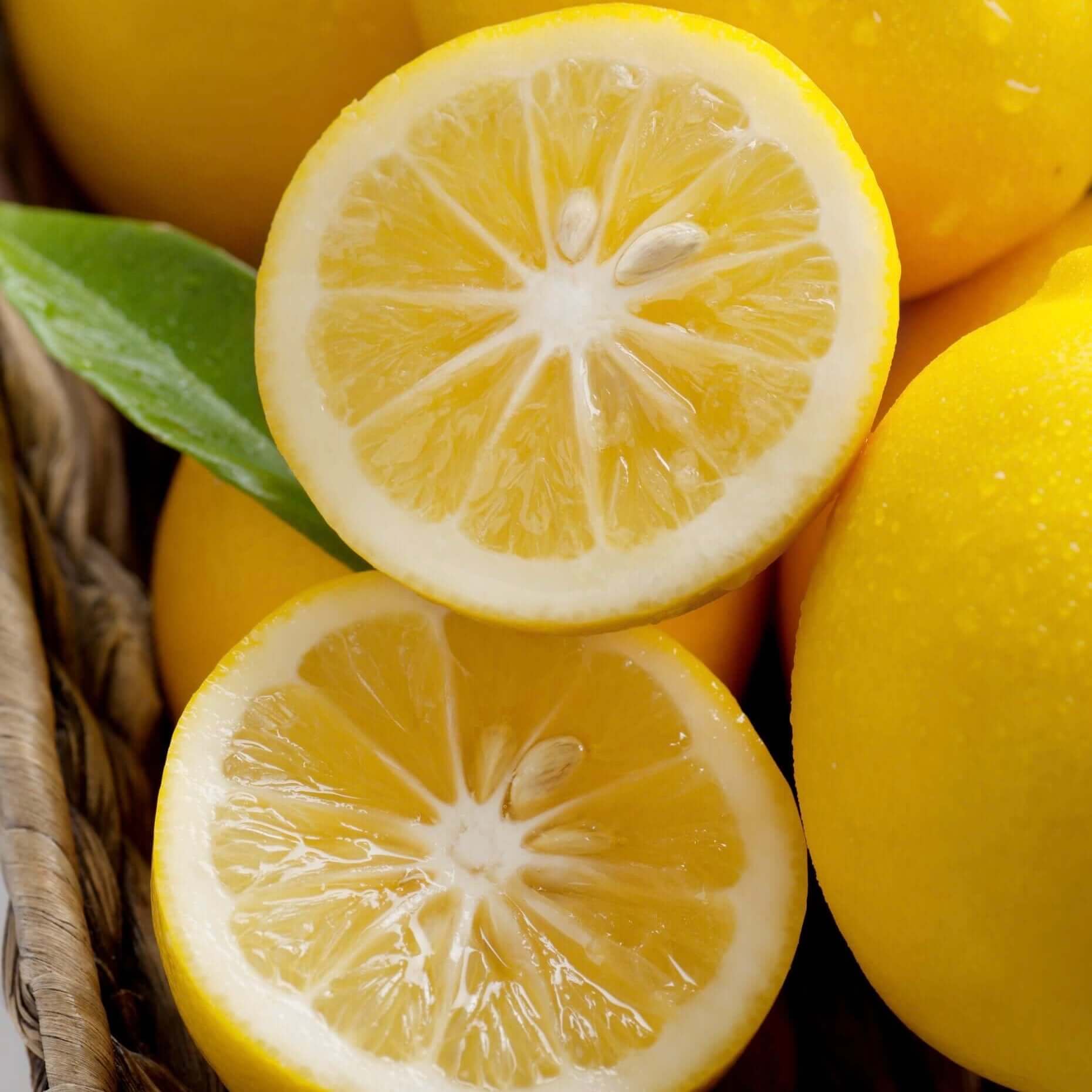
Meyer Lemon Tree
Citrus × meyeri 'Improved'
24-hour money-back guarantee
Free delivery on orders over $349
Delivery
Big Project? Call 888-444-1126 for bulk rates!
The Improved Meyer Lemon Tree is a must have for anyone who is interested in having a touch of flavor in your California garden. Meyer Lemon is a hybrid between a sour lemon and a sweet orange. The flavor is truly unique, and the fruit is incredibly juicy. The everbearing tree can produce an abundance of fragrant lemons perfect for culinary creations.
Simply said, the Meyer lemons taste sweeter than regular lemons. Meyer lemons have less acidity, a complex flavoring, and a thin, smooth yellow skin that is perfectly suited as a garnish in your beverage but not for zesting. As the fruit matures on the tree, the skin darkens to an orangish-yellow color and becomes more sweet. The fruit of the Meyer Lemon is less tart and juicier than the Eureka lemon.
In California's mild climate, a Meyer Lemon tree is an excellent choice as an evergreen landscape tree with glossy, green leaves and the bonus of flavorful fruit and fragrant, star-shaped white flowers that can stir the senses when the lovely citrus fragrance is released into the air. The Improved Meyer Lemon tree is smaller than the Eureka lemon tree, and is easy to grow and maintain with minimal effort.
Planted in a container, the Meyer Lemon tree will be smaller, making this the ideal lemon for patios or indoors, and the perfect gift that keeps giving. Add a Meyer Lemon Tree to your home or garden and enjoy everything this amazing citrus tree has to offer. Read How to Properly Plant a Lemon Tree.
The mature height and fruit production of your citrus tree will depend on several environmental factors such as climate, light, soil type, texture, fertility and moisture, and pruning practices. Your citrus tree can easily be maintained at a smaller size with annual pruning.
How tall does a Meyer Lemon Tree grow?
Can the Meyer Lemon Tree grow indoors or in containers?
What’s the difference between a Meyer Lemon and a regular Eureka Lemon?
When does the Meyer Lemon Tree produce fruit?
Lemon, Citrus
10-15 ft.
6-8 ft.
Moderate
Perfect Your Landscape With Expert Help
Customize your yard with confidence. Schedule your free consultation today and bring your outdoor space to life!




